Tianyou Zuo
AdaRec: Adaptive Sequential Recommendation for Reinforcing Long-term User Engagement
Oct 06, 2023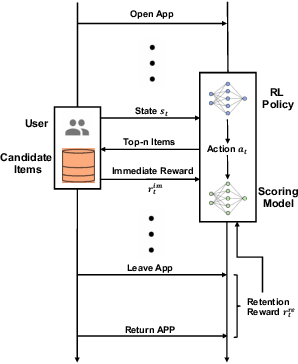
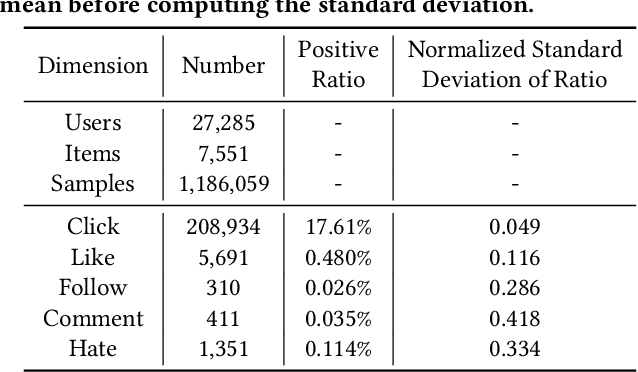

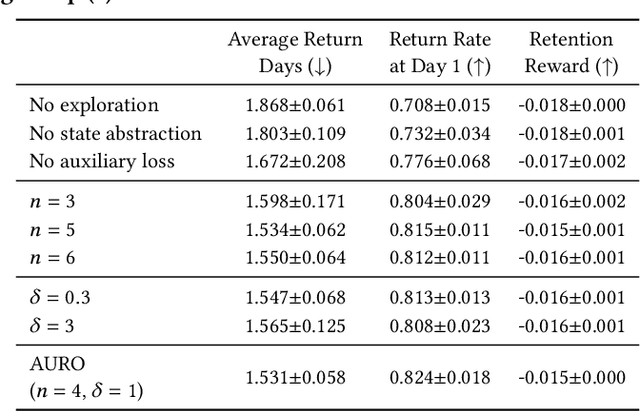
Abstract:Growing attention has been paid to Reinforcement Learning (RL) algorithms when optimizing long-term user engagement in sequential recommendation tasks. One challenge in large-scale online recommendation systems is the constant and complicated changes in users' behavior patterns, such as interaction rates and retention tendencies. When formulated as a Markov Decision Process (MDP), the dynamics and reward functions of the recommendation system are continuously affected by these changes. Existing RL algorithms for recommendation systems will suffer from distribution shift and struggle to adapt in such an MDP. In this paper, we introduce a novel paradigm called Adaptive Sequential Recommendation (AdaRec) to address this issue. AdaRec proposes a new distance-based representation loss to extract latent information from users' interaction trajectories. Such information reflects how RL policy fits to current user behavior patterns, and helps the policy to identify subtle changes in the recommendation system. To make rapid adaptation to these changes, AdaRec encourages exploration with the idea of optimism under uncertainty. The exploration is further guarded by zero-order action optimization to ensure stable recommendation quality in complicated environments. We conduct extensive empirical analyses in both simulator-based and live sequential recommendation tasks, where AdaRec exhibits superior long-term performance compared to all baseline algorithms.
Reinforcing User Retention in a Billion Scale Short Video Recommender System
Feb 12, 2023
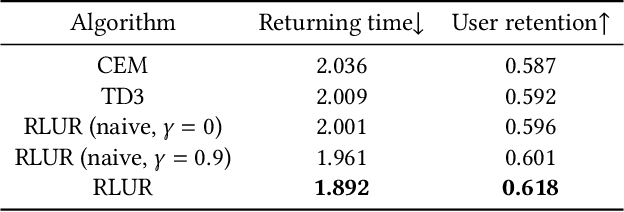
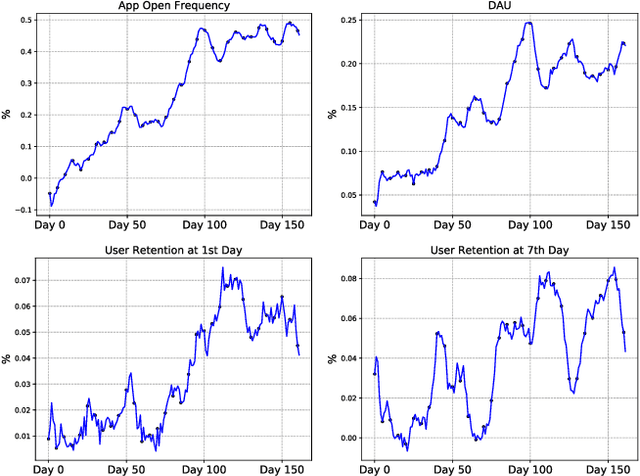
Abstract:Recently, short video platforms have achieved rapid user growth by recommending interesting content to users. The objective of the recommendation is to optimize user retention, thereby driving the growth of DAU (Daily Active Users). Retention is a long-term feedback after multiple interactions of users and the system, and it is hard to decompose retention reward to each item or a list of items. Thus traditional point-wise and list-wise models are not able to optimize retention. In this paper, we choose reinforcement learning methods to optimize the retention as they are designed to maximize the long-term performance. We formulate the problem as an infinite-horizon request-based Markov Decision Process, and our objective is to minimize the accumulated time interval of multiple sessions, which is equal to improving the app open frequency and user retention. However, current reinforcement learning algorithms can not be directly applied in this setting due to uncertainty, bias, and long delay time incurred by the properties of user retention. We propose a novel method, dubbed RLUR, to address the aforementioned challenges. Both offline and live experiments show that RLUR can significantly improve user retention. RLUR has been fully launched in Kuaishou app for a long time, and achieves consistent performance improvement on user retention and DAU.
Two-Stage Constrained Actor-Critic for Short Video Recommendation
Feb 06, 2023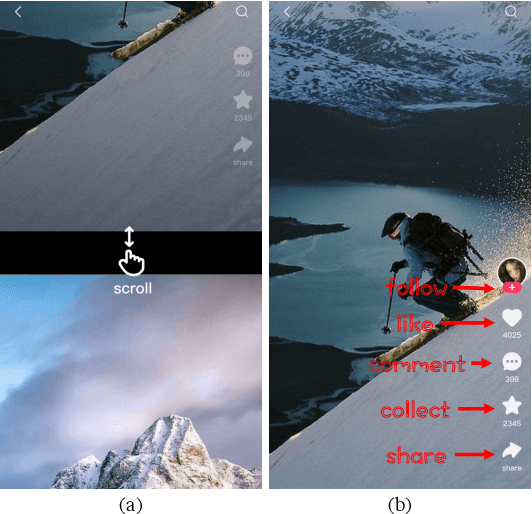
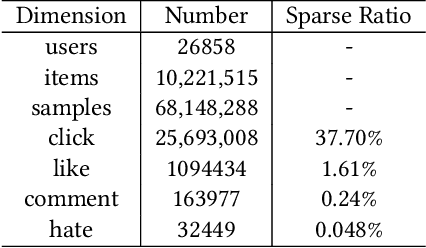
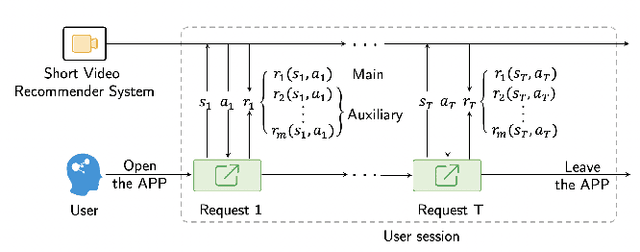
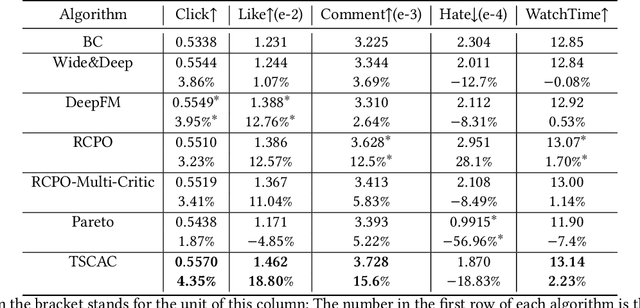
Abstract:The wide popularity of short videos on social media poses new opportunities and challenges to optimize recommender systems on the video-sharing platforms. Users sequentially interact with the system and provide complex and multi-faceted responses, including watch time and various types of interactions with multiple videos. One the one hand, the platforms aims at optimizing the users' cumulative watch time (main goal) in long term, which can be effectively optimized by Reinforcement Learning. On the other hand, the platforms also needs to satisfy the constraint of accommodating the responses of multiple user interactions (auxiliary goals) such like, follow, share etc. In this paper, we formulate the problem of short video recommendation as a Constrained Markov Decision Process (CMDP). We find that traditional constrained reinforcement learning algorithms can not work well in this setting. We propose a novel two-stage constrained actor-critic method: At stage one, we learn individual policies to optimize each auxiliary signal. At stage two, we learn a policy to (i) optimize the main signal and (ii) stay close to policies learned at the first stage, which effectively guarantees the performance of this main policy on the auxiliaries. Through extensive offline evaluations, we demonstrate effectiveness of our method over alternatives in both optimizing the main goal as well as balancing the others. We further show the advantage of our method in live experiments of short video recommendations, where it significantly outperforms other baselines in terms of both watch time and interactions. Our approach has been fully launched in the production system to optimize user experiences on the platform.
* arXiv admin note: substantial text overlap with arXiv:2205.13248
 Add to Chrome
Add to Chrome Add to Firefox
Add to Firefox Add to Edge
Add to Edge